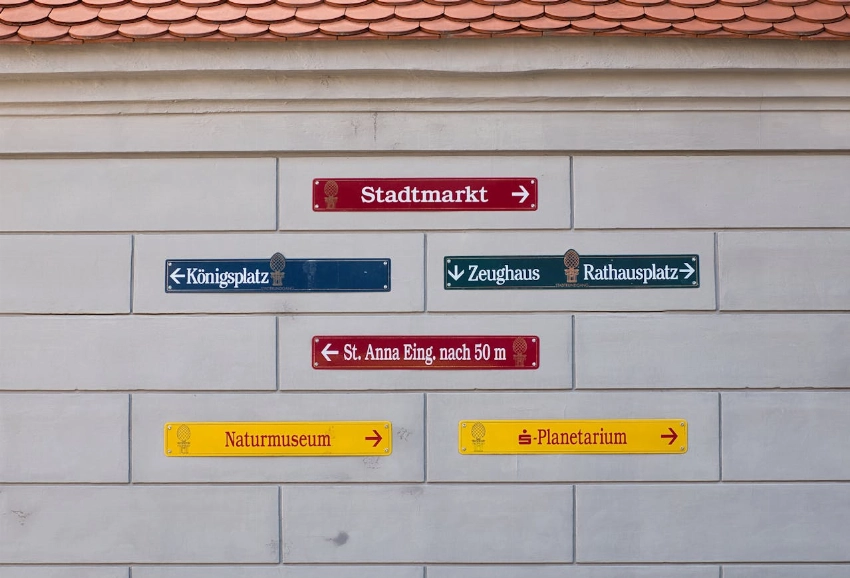Key Highlights
- What Is the Minimum Wage Germany Right Now? (2025 Update)
- How Much Is €12.82 Per Hour in Monthly and Annual Salary in Germany 2025?
- Who Is Entitled to the Minimum Wage Germany in 2025?
- What Are the Exemptions from the Minimum Wage in Germany?
- What Is the Minimum Wage in Germany for International Students in 2025?
- How Does the Mini-Job System Work with Minimum Wage Germany?
- How Has Germany's Minimum Wage Changed Over Time? Experts Insights 2025
- What is the Future of the Minimum Wage in Germany? (2026-2027 Projections)
- How Does Germany's Minimum Wage Compare to Other European Countries in 2025?
- What Are the Tax Implications for Minimum Wage Earners in Germany in 2025?
- How Does the Cost of Living Impact the Minimum Wage in Germany in 2025?
- What Jobs in Germany Typically Pay Minimum Wage in 2025?
- How Do Industry-Specific Minimum Wages Work in Germany 2025?
- What Should You Do If You're Paid Below minimum wage Germany?
- How Does Minimum Wage Affect International Students from India in 2025?
- Conclusion
The minimum wage Germany is currently EUR12.82 per hour (effective as of January 2025), affording excellent protection for all workers in the country, whose economy is the largest in Europe. The minimum wage in Germany is a critical figure for professionals, students, and international workers who want to work in Germany. This complete guide examines minimum wages for various forms of employment, such as the specific regulations in Germany for students and the minimum wage for international students. Whether you are a paperwork employee or a part-time worker, knowing what is the minimum wage in Germany.
What Is the Minimum Wage Germany Right Now? (2025 Update)

The minimum wage Germany as of January 1 2025, is EUR12.82 (EUR) per hour (some 1,117 $ per hour). This is a gross (pre-tax) hourly wage rate established by the Minimum Wage Commission, which regularly reviews and issues changes to the rate (pre-tax). The statutory minimum wage was first introduced in 2015 at a gradually increasing rate, rising from EUR8.50 per hour to EUR12.00 in October 2022. In addition, there have already been increases of EUR13.90 in 2026 and EUR14.60 in 2027, which were passed by the German government in order to offer higher wage protection in view of inflation and economic shifts.
Here is a summary table of the evolution of the minimum wage and the minimum wages to come:
|
Year |
Minimum Wage (EUR/hour) |
Approx. INR/hour |
Notes |
|
2015 |
8.50 |
~741 |
Introduction of the statutory minimum wage |
|
2022 (Oct) |
12.00 |
~1,046 |
Significant increase from previous years |
|
2024 |
12.41 |
~1,081 |
Adjustment by Minimum Wage Commission |
|
2025 |
12.82 |
~1,117 |
Effective January 1, 2025 |
|
2026 |
13.90 (planned) |
~1,211 |
Planned increase on January 1, 2026 |
|
2027 |
14.60 (planned) |
~1,273 |
Planned increase on January 1, 2027 |
The minimum wage in Germany applies more or less across the board, but there are exceptions for trainees and interns, as well as for some young or long-term unemployed workers.
Also Read: Minimum Salary in Germany for Students & Professionals
How Much Is €12.82 Per Hour in Monthly and Annual Salary in Germany 2025?
With a minimum wage Germany of EUR12.82 per hour breathing down my neck in 2025, a full-time, 40 hours per week worker would earn to the tune of roughly EUR2,222 gross per month or about INR 1,93,600 per year and roughly EUR26,666 gross per year or about INR 23,23,200 per year. This gross salary is before any tax and social security deductions, which will normally take home pay down to about 60-70% of the gross figure. Usual deductions are income tax, health insurance, pension contribution, and unemployment insurance, which lead to an estimated net monthly income of approximately EUR1,601.
Some are written as if the gross salary is the amount we receive before deductions, while the net salary is the amount we take home after the mandatory deductions.
Here is a breakdown presented in an appropriate table format:
|
Weekly Hours |
Gross Monthly Salary (EUR) |
Approx. Monthly Salary (INR) |
Estimated Net Monthly Salary (EUR) |
|
20 |
1,111 |
INR 96,800 |
~800 |
|
30 |
1,666 |
INR 1,45,200 |
~1,200 |
|
40 |
2,222 |
INR 1,93,600 |
~1,601 |
These figures give a practical understanding for international students and workers who are considering the minimum wage and earnings in Germany.
Who Is Entitled to the Minimum Wage Germany in 2025?

Minimum wage Germany is paid to all employees who are older than 18 years (also for foreign workers, international students, part-time workers and seasonal workers) with some minimal exceptions in case of trainees, volunteers and certain types of internships.
-
The minimum wage in Germany is a statutory rate that applies to all employees over the age of 18, regardless of nationality—foreign workers and students included.
-
Covered workers include full-time, part-time, temporary/agency, seasonal, agricultural, mini-jobbers, and midi-jobbers.
-
The minimum wage applies regardless of the type of contract or the number of hours worked for the general protection of wages in all employment forms.
-
There are special provisions for trainees under vocational training, self-employed voluntary interns (up to 3 months), compulsory practical training and unpaid volunteers for the study.
-
To ensure that minimum wages are paid, the German Customs Authority (Zoll) exercises control functions, ensuring that employers comply with wage regulations.
-
These are in line with Germany's comprehensive minimum wage law, which guarantees fair distribution of wages for a broad spectrum of workers, such as international students and part-time workers.
Also Read: Australia’s Minimum Wage Set to Increase
What Are the Exemptions from the Minimum Wage in Germany?
Minimum wage Germany remains EUR12.82 per hour as a benchmark for the Employment Insurance; they have certain parts of the workforce for whom the minimum wage in Germany doesn't apply. Here are the exemptions taken from the original:
Key Exemptions:
-
Trainees/Apprentices - Under an Ausbildung (dual vocational training) agreement, students earn a different regulated amount from the minimum wage Germany, ranging from EUR 682 per month in 2025.
-
Volunteers - Bundesfreiwilligendienst (federal voluntary service), FSJ (social year) and FOJ (ecological year), being independent of this, are exempt
-
Mandatory Internships - University-required internships of 3 months or more are not subject to minimum wage requirements.
-
Short internships - 3-month or less —of career exploration are not included.
-
Under 18 - The German legal minimum wage does not apply to workers under 18 who have not undergone vocational training.
-
Long-Term Unemployed - The unemployed for 1+ years are exempt only in their initial six months back to work.
-
Self-Employed/Freelancers - Independent contractors are not considered employees and therefore are not covered.
Important Clarifications:
-
Voluntary Internships for a minimum of 3 Months - minimum wage in Germany for EUR12.82 per hour.
-
University Research Assistants: University research assistants are reimbursed at a minimum wage or higher, depending on the institution and degree level.
What Is the Minimum Wage in Germany for International Students in 2025?

The statutory minimum wage in Germany for international students is EUR12.82 per hour in 2025, the same as that of any other workers under national law. All students (including non-EU) are allowed to work 140 full days (or 280 half days) per calendar year (or 20 hours per week during lectures), either in or outside the EU (or 150 days for non-EU students) and all students from countries within the EU/EEA have equivalent access and can work throughout the year, usually only in term-time (20 hours per week).
The minimum wage Germany for international students is as low as the minimum wage Germany, which is EUR12.82/ hour, the same as for all employees under the Minimum Wage Act.
1. EU Students' Work Rights
-
EU/EEA/Swiss students can work under the same conditions as German persons; during lecture periods, the general rule of thumb is up to 20 h/week to stay a student.
-
No limit of 140/280 days is being applied to EU/EEA students; standard labour and student insurance regulations apply to these students.
2. Work Restrictions for Non-EU Students
-
Non-EU students can work up to 140 full days or 280 half days a year, and up to 20 hours a week during a semester.
-
A half day is up to 4 hours; a whole day is considered 8 hours, including planning and compliance.
-
Semester breaks are more flexible, and full-time work is allowed up to an annual 140/280 limit.
-
Please note that most on-campus "student assistant" positions at universities do not count against the 140/280 cap, and therefore, do not count against the annual cap.
3. Mini-Jobs for Students
-
Mini-job limit in 2025: EUR556/month: The students can earn up to this limit, but don't pay any income tax as an employee.
-
At present, there's a gap of around 43 hours per month at an hourly rate of EUR12.82, which ensures I wouldn't breach the EUR556 limit.
-
Mini-jobs can be added up, but if the limit is exceeded, the employment is reclassified into the mini-job bracket with regular contributions.
4. Tax-Free Income Threshold
-
Salary as a mini-job employee up to EUR556/month is tax-free - larger amounts are taxed regularly and social contributions paid.
-
Flat-rate employer charges still apply to mini-jobs, and students can also opt out of employer pension contributions (where applicable).
5. Student Hours Work Calculator/Table
|
Scenario |
Hours |
Monthly gross at €12.82 |
Compliance note |
|
Mini-job safe plan |
43 h/month |
≈ €551 |
Within €556 mini-job cap |
|
Term-time job |
20 h/week |
≈ €1,110/month |
Within the 20 h/week rule for lecture periods |
|
Semester break full-time |
8 weeks × 40 h |
≈ €4,100 total |
Counts toward 140 full-day allowance |
Also Read: Canada Minimum Wage Per Month: Experts' Latest Guide
How Does the Mini-Job System Work with Minimum Wage Germany?
Germany's mini-job scheme allows employees to earn up to EUR556/month (ca. 43 hours at the EUR12.82 minimum wage in Germany), which is tax-free in August 2025, and employer-only flat-rate social charges with reduced employee contributions. The mini-job in Germany is subject to the full minimum wage, which means that the minimum wage in Germany is valid for all employees, regardless of whether this is the minimum wage in Germany for trainees or the minimum wage in Germany for foreign students.
-
Minijob (geringfugige Beschaftigung): Marginal employment with a limitation on earnings over a specific period of time and a complete application of the minimum wage Germany.
-
2025 Ceiling: Increased from EUR538 to EUR556 as minimum wage amount increased to EUR12.82/hour.
-
As per the Director of the Department of the Economy, Max hours: EUR556 / EUR12.82 INR 43 hours per month at the legal floor.
-
Employee benefits: Tax-free benefits, no unemployment insurance, optional pension contributions, and student/family insurance continuation, if eligible.
-
Employer responsibilities: Registering mini-job, making flat-rate contributions (approximately 30%), including employer pension share, and making accident insurance contributions.
-
Midi-job vs Mini-job: Total income above the threshold of EUR556/month = the onset of the progress of contributions up to the EUR2,000 band starts. Regular employment means above the midi range.
-
Students/Part-timer: Germany is popular as a country of residence where stays are tax-free; the minimum wage in Germany for international students and students' minimum wage in Germany still applies for EUR12.82/hour.
|
Type |
Earnings Range |
Taxes and Contributions |
Hours Cap |
Applies to |
|
Mini-job |
Up to €556/month |
No income tax for employees; flat-rate employer contributions; optional employee pension |
No legal hours cap; ~43 h/month at €12.82 to stay within €556 |
Students, internationals, part-timers; minimum wage applies |
|
Midi-job |
>€556 to ~€2,000/month |
Reduced, progressive employee contributions toward full rates |
No special hours cap; standard labour limits apply |
Bridge to regular jobs; preserves social insurance accruals |
|
Regular employment |
Above midi limit |
Full payroll taxes and social insurance are required by law |
Standard working time rules apply |
The minimum wage in Germany |
How Has Germany's Minimum Wage Changed Over Time? Experts Insights 2025
Germany's first statutory nationwide minimum wage of EUR8.50/hour was implemented on 1st January 2015, and the wage rate has been gradually increased over the past ten years to EUR12.82 in 2025 (+50.8%), EUR13.90 in 2026 and EUR14.60 in 2027. Historical Timeline:
-
2015: EUR8.50/hour - introduction of the first statutory minimum wage nationwide in Germany.
-
2017: EUR8.84 hourly - slight increase for inflation
-
2019: EUR9.19/hour - continued slow upward trend.
-
2020: Ever-scarce conservative wage hike to EUR9.35/hour - despite a recession.
-
2021: Wages to reach EUR9.60/hour - Economic recovery after Covid.
-
2022 (October): EUR12.00/hour - a big 25% increase due to the energy crisis and inflation
-
2024: EUR12.41 per hour - continued adjustment
-
2025: GBP12.82/hour - current minimum wage in Germany rate
-
2026 (Projected): EUR13.90/hr - Government approved increment
-
2027 (estimated): EUR14.60/hour - last stage of the planned hikes
In the case of the business's minimum wage increase this past year, more than 6 million workers were impacted by the minimum wage increase alone. Sectoral models have been abandoned in favour of a first minimum wage following the coalition agreement of the SPD in Germany in 2013.
Studies have indeed been done to assert that the minimum wage in Germany has not drastically affected employment while safeguarding the vulnerable workers, and also that the minimum wage in Germany for international students and the minimum wage in Germany for students have been well understood.
Also Read: Average Basic Salary in Germany: Facts, Pay, Tips & More
What is the Future of the Minimum Wage in Germany? (2026-2027 Projections)
The minimum wage in Germany Commission has confirmed rises to EUR13.90 per hour for January 1, 2026 and to EUR14.60 per hour for January 1, 2027 - equivalent to rises of 8.4% and 5% per annum. These planned hikes are part of the government's resolve to keep up purchasing power during inflationary conditions and in line with EU directives concerning fair wage practices, including the minimum wage in Germany for international students and the minimum wage in Germany for students.
Proven in the Future Rates, Monthly Calculations:
|
Period |
Hourly Rate |
Monthly Gross (40-hour week) |
Annual Gross |
Year-over-Year Change |
|
Current (2025) |
€12.82 |
€2,222 |
€26,666 |
— |
|
2026 (Jan 1) |
€13.90 |
€2,410 |
€28,920 |
+8.4% |
|
2027 (Jan 1) |
€14.60 |
€2,537 |
€30,444 |
+5.0% |
How Does Germany's Minimum Wage Compare to Other European Countries in 2025?

Minimum wage in Germany of EUR12.82 per hour (EUR2,161 monthly) is the second-highest in the EU after Luxembourg (EUR15.35 hourly/EUR2,704 monthly) by far, greatly exceeding such major economies as France (EUR1,802), the Netherlands (EUR2,246), Belgium (EUR2,112), and much higher than Spain (EUR1,381) and Portugal (EUR1,015). When expressed in terms of purchasing power standards (PPS) instead, Germany's minimum wage is 1,992 PPS - the highest of any country in the entire EU - making Germany's minimum wage the economically most-protective in the world.
EU Minimum Wage Rankings (Or at least close to it, and that was until July 2025):
|
Rank |
Country |
Hourly Rate |
Monthly Rate |
Notes |
|
1 |
Luxembourg |
€15.35 |
€2,704 |
Highest in the EU |
|
2 |
Germany |
€12.82 |
€2,161 |
minimum wage in Germany |
|
3 |
Ireland |
€12.97 |
€2,282 |
Growing tech hub |
|
4 |
Netherlands |
€12.77 |
€2,246 |
Similar to Germany |
|
5 |
Belgium |
€11.76 |
€2,112 |
High cost of living |
|
6 |
France |
€10.26 |
€1,802 |
Historical minimum |
|
7 |
Spain |
€7.85 |
€1,381 |
Lower southern rate |
|
8 |
Slovenia |
€7.27 |
€1,278 |
Eastern EU entrance |
|
9 |
Poland |
€6.20 |
€1,091 |
Central European level |
|
10 |
Portugal |
€5.77 |
€1,015 |
Growing economy |
Also Read: Physiotherapist Salary in Germany: New Pay, Scope & More
What Are the Tax Implications for Minimum Wage Earners in Germany in 2025?
Whereas mini-job workers earning less than EUR 556/month are not required to pay any income tax, assuming full-time employment and resulting at least 27-30% income tax on the income paid plus social security contribution, the EUR 2,222 gross salary reduces to EUR 1,700-EUR 1,750 net salary. In addition to the international students' minimum wage Germany and the minimum wage Germany for students, the minimum wage Germany includes knowledge of the high tax burden on the minimum wage Germany.
Salary shown as Gross-to-Net Salary Breakdown (EUR 12.82/hr, 40hr week):
|
Component |
Rate |
Monthly Deduction |
Annual Deduction |
|
Gross Salary |
— |
€2,222 |
€26,664 |
|
Income Tax (Progressive) |
14-42% bracket |
~€180-220 |
~€2,160-2,640 |
|
Solidarity Surcharge |
5.5% of income tax |
~€10-12 |
~€120-145 |
|
Pension Insurance (Employee) |
9.3% |
~€206 |
~€2,472 |
|
Health Insurance (Employee) |
7.3% (avg.) |
~€162 |
~€1,944 |
|
Unemployment Insurance |
1.3% |
~€29 |
~€348 |
|
Long-term Care Insurance |
1.7-2.3% |
~€38-51 |
~€456-612 |
|
Total Deductions |
~27-30% |
~€625-700 |
~€7,500-8,400 |
|
Net Take-Home Pay |
— |
~€1,550-1,597 |
~€18,264-19,164 |
How Does the Cost of Living Impact the Minimum Wage in Germany in 2025?

While the nominal minimum wage Germany is EUR12.82 + EUR1,601 net income per month, living costs also vary significantly: Munich needs around EUR 1,300-EUR 1,600/month, and Leipzig EUR800-EUR950 per month, so the minimum wage in Germany is considered high in less costly regions but very low in more costly cities. However, the vast regional differences mean that the amount of the minimum wage Germany has a different nominal purchasing power status at the regional level, especially for the minimum wage Germany for international students and for the minimum wage Germany for those looking for cheap housing.
City Compare Monthly Rental in Germany (2025):
|
Rank |
City |
1-BR Rent (City Centre) |
1-BR Rent (Outside Centre) |
Overall Cost of Living Category |
|
1 |
Munich |
€1,436 |
€1,213 |
Most Expensive |
|
2 |
Frankfurt |
€1,283 |
€939 |
Very Expensive |
|
3 |
Berlin |
€1,220 |
€881 |
Expensive |
|
4 |
Stuttgart |
€1,115 |
~€900 |
Expensive |
|
5 |
Hamburg |
€1,097 |
€785 |
Expensive |
|
6 |
Cologne |
€1,027 |
€791 |
Moderate |
|
7 |
Hanover |
€906 |
~€700 |
Moderate |
|
8 |
Dresden |
€766 |
~€600 |
Affordable |
|
9 |
Leipzig |
€721 |
~€550 |
Most Affordable |
|
10 |
Saarbrücken |
€486 |
~€380 |
Cheapest |
Typical Monthly Living Expenses Breakdown (2025):
|
Expense Category |
Monthly Cost |
Details |
|
Accommodation |
€300–€700 |
Student dorms: €350–€500; WG (flat-share): €500–€600; 1-BR apartment: €600–€1,000+ (varies by city) |
|
Food/Groceries |
€200–€300 |
Home cooking; student Mensa meals €2–€4; eating out €10–€20/meal |
|
Transportation |
€50–€100 |
Semester ticket included in uni fees for unlimited public transit in most cities |
|
Utilities(if separate) |
€200–€300 |
Electricity, heating, water; often included in shared housing |
|
Health Insurance |
€80–€120 |
Student rate; employer/employer contribution for working students |
|
Internet/Mobile |
€25–€50 |
Student plans; 10GB+ data €25–€40/month |
|
Other Expenses |
€100–€200 |
Books, laundry, leisure, student discounts on cultural activities |
Also Read: Average Salary in Malaysia: Latest Pay, Trends & More
What Jobs in Germany Typically Pay Minimum Wage in 2025?
Standard minimum wage in Germany includes hospitality roles (waiters, hotel staff), retail sales associates, cleaning and janitorial services, agricultural labourers, warehouse staff, and delivery drivers. However, ongoing labour shortages mean many employers in these sectors now offer €13–€15/hour to attract and retain staff. The statutory minimum wage in Germany of €12.82/hour serves as an absolute legal floor for low-wage sectors, especially relevant for the minimum wage in Germany for international students and the minimum wage in Germany seeking entry-level job opportunities.
Typical Minimum Wage Sectors in Germany
-
Hospitality: Waiters, bar staff, hotel receptionists, housekeeping
-
Retail: Cashiers, shelf stockers, supermarket assistants, store clerks
-
Services: Cleaners, janitors, security guards, domestic help
-
Agriculture: Seasonal farm workers, harvesters, fruit pickers, vineyard helpers
-
Logistics: Warehouse sorters, package handlers, loading dock staff
-
Delivery: Bicycle couriers, food delivery riders, parcel services
-
Care Work: Elderly care assistants, childcare aides
Labour Market Realities & Wages in Germany
-
Ongoing labour shortages, especially in hospitality and logistics, have pushed many employers to offer wages above the legal minimum of €13–€15/hour.
-
Highly skilled positions (technicians, IT, specialised trades) rarely pay minimum wage, with starting salaries from €15–€20+/hour.
Student-Friendly and Seasonal Jobs in Germany
-
Students often take campus jobs, as research assistants, library clerks, or event staff, which frequently match or exceed the minimum wage in Germany.
-
Tutoring, working at university offices, or as academic research assistants usually pays above the statutory minimum wage.
-
Seasonal work (in tourism, agriculture, and festivals) offers temporary contracts at the legal minimum wage, often with room/board for international students.
Working Conditions & Protections in Germany
-
All minimum wage jobs are legally protected with strict compliance monitoring, scheduled breaks, overtime limits, and paid vacations; failure by employers to meet these standards can result in significant fines.
-
Employees are entitled to written contracts, social security registration, and recourse to labour courts if the minimum wage in Germany is not paid.
Sector Composition Statistics in Germany
-
Around 20% of low-wage sector jobs in Germany are in hospitality/food service, 18% in retail, 15% in cleaning/services, and roughly 10% in logistics/delivery and agriculture combined.
-
Most workers at the minimum wage in Germany for international students and the minimum wage in Germany are in retail, hospitality, and logistics roles, reflecting high student employment rates in these sectors.
How Do Industry-Specific Minimum Wages Work in Germany 2025?

Beyond the general statutory minimum wage of €12.82 per hour (effective from January 1, 2025), Germany has sector-specific minimum wages negotiated through collective bargaining agreements, often exceeding the general minimum. For example, during 2024–2025, temporary employment agencies must pay workers between €14.00 and €14.53/hour, while skilled trades such as construction, electrical work, and roofing have negotiated minimums ranging from €14.35 to over €18/hour depending on skill level and region.
Major Industries with Higher Sectoral Minimum Wages in Germany:
|
Sector |
Typical Minimum Hourly Wage |
Skilled Worker Minimum |
Notes |
|
Temporary employment (agency) |
€14.00–€14.53 |
N/A |
Industry-specific collective agreements |
|
Construction, roofing |
€13–€18 |
Yes |
Based on skill categorisation |
|
Electrical trade |
€14.41 (2025) |
Yes |
Negotiated union-standard minimum |
|
Nursing/care services |
€13.50–€16.50 |
Yes |
With qualifications |
|
Painting/decorating |
€13–€15 |
Yes |
Depending on skill level |
How Sector Minimums Are Determined?
Sectoral wages are negotiated through collective agreements between employer associations and trade unions, which are often extended to all employers in the sector through the Extension Procedure (Allgemeinverbindlichkeitserklärung). Workers always receive a higher wage, whether statutory or sector-specific.
Skilled vs. Unskilled Classifications:
-
Helpers (Helfer): Entry-level, lower minimum wages (e.g., €12–€13/hour)
-
Fachkraft (skilled worker): Higher minimum wages, typically exceeding €14/hour
-
Specialists: Usually earn well above sector minimums, often €15–€20+
Upcoming Sectoral Minimums
Other sectors under review include logistics, manufacturing, and healthcare, with negotiations ongoing for sector-specific or regional minimum wages that could further surpass the general €12.82 rate in specific industries.
|
Industry |
2025 Sectoral Minimum |
Notes |
|
Temporary agency |
€14.00–€14.53 |
Higher than the general minimum, union-negotiated |
|
Construction |
€13–€18 |
Based on skill level |
|
Electrical |
€14.41 |
For skilled workers |
|
Nursing |
€13.50–€16.50 |
Progression based on qualifications |
This two-tier system ensures low-wage workers in high-demand industries earn above the statutory minimum, reflecting both sector needs and skill levels.
Also Read: Germany Waiter Salary: Latest Pay, Tax, Trends & Tips
What Should You Do If You're Paid Below minimum wage Germany?
If paid below €12.82/hour in Germany, immediately take the following steps to protect your rights under the minimum wage laws in Germany:
-
Document Everything: Keep detailed records of all work hours, pay slips, contracts, and communications related to your employment. Calculate your actual hourly wage (total pay ÷ hours worked) to prove underpayment.
-
Review Your Contract: Check for any hidden clauses or misclassifications that might mask minimum wage violations. Confirm your employment status aligns with the minimum wage regulations in Germany, especially if you're an international student or working part-time.
-
Address Employer Formally: Submit a clear, written complaint to your employer's HR department or supervisor, stating your calculated wage breach. Request a written clarification within 14 days, keeping copies of all correspondence.
-
File a Complaint if Unresolved: Contact the German Customs Authority's Financial Control of Undeclared Work (Finanzkontrolle Schwarzarbeit - FKS) to report violations, as they enforce minimum wage laws and can levy fines up to €500,000 on employers.
-
Seek Legal Advice: Reach out to trade unions like Ver.di or IG Metall, workers' rights organisations, or qualified labour lawyers for support and possible back pay claims. Involve employee advice centres (Arbeitnehmerberatung) for guidance.
-
Understand Your Rights: Wage claims under the minimum wage in Germany have a statute of limitations of three years. Retaliation by employers against wage claimants is illegal—worker protections are strong.
How Does Minimum Wage Affect International Students from India in 2025?

Indian students in Germany benefit from the €12.82 minimum wage (INR 1,117/hour), allowing them to earn approximately INR 47,250-INR 64,500 monthly tax-free through mini-jobs while respecting the 120-day annual work limit. This income can significantly offset the mandatory blocked account requirement of INR 86,496/month (€992), easing financial pressures for international students.
Income Potential
-
10 hours/week: €512/month (INR 44,600) — below the €556 mini-job tax-free threshold
-
12 hours/week: €614/month (INR 53,500) — slightly exceeds mini-job limit, regular taxes apply
-
20 hours/week during semester breaks: €1,024/month (INR 89,200) — full-time work allowed during breaks, increasing income significantly
Balancing Work and Study
-
Choose flexible jobs like mini-jobs in retail or hospitality, or campus research assistant positions, to maintain academic performance while earning.
-
Social security benefits include pension contributions and possible family insurance continuity for mini-job workers.
Post-Graduation Options
-
Graduates enjoy an 18-month job-seeker visa extension to find full-time employment in Germany, supported by experience gained during their studies.
Budget Planning
-
Earnings from part-time work are crucial for covering living costs, reducing reliance on blocked account funds. Students should plan budgets that include work hours, rent, health insurance, and other expenses to ensure sustainable finances.
Practical Steps for International Students
-
Maximise work within 120 full/240 half-day limits for non-EU students.
-
Prioritise mini-job roles to earn tax-free income under €556/month.
-
Track and document work hours carefully to stay compliant with visa rules.
-
Take advantage of university job placements and career services for flexible roles.
-
Plan finances, balancing blocked account funds and wage income for a smooth study tenure.
-
Stay informed on post-study work rights to leverage internships and job opportunities.
Also Read: How to Get a Job in Germany from India: Latest Guide
Conclusion
The minimum wage Germany in 2025 is €12.82 per hour, roughly INR 1,117/hour, making it one of the highest in the European Union. It has increased steadily from €8.50 in 2015, with plans to rise to €14.60 by 2027. For international students, this wage allows earning approximately €512–€1,024 monthly through permitted part-time work, significantly reducing the blocked account requirement of INR 86,496 (€992).
The wage supports fair pay across industries and sectors, with industry-specific minimums often exceeding the statutory rate by 10-25%. Understanding these regulations is essential for financial planning when studying or working in Germany.
Contact TerraTern for more information on Minimum Wage Germany 2025: Complete Guide.






